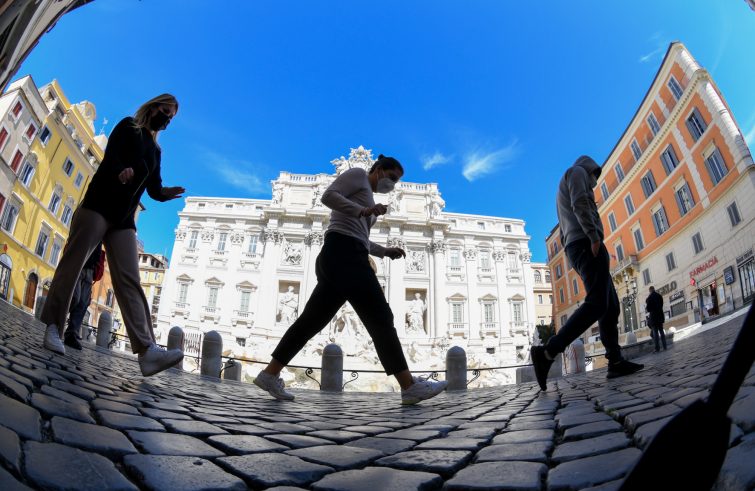
“As she embarks on this journey, the Church of God in Italy is not starting from scratch. In fact she embraces and relaunches the wealth of the Bishops’ Conference’s ten-year-long pastoral guidelines, drawn up as of the 1970s, which, in fruitful interweaving with papal magisterium, from Paul VI to Francis, constitute a comprehensive and permanently valid roadmap for the life of our communities”, reads the Message of the Permanent Council of the Italian Bishops’ Conference “to priests, deacons, consecrated men and women and all pastoral workers” on the Synodal Path of the Churches in Italy.” “In his programmatic document Evangelii Gaudium – the bishops write in the Message – Pope Francis gave renewed impetus to the missionary dimension of Christian experience with new and vigorous words, setting out courageous avenues for the whole Church, challenging her to set out with greater determination, together with the women and men of our time. That document, whose scope was reflected ever more clearly in the gestures, choices and teachings of the Pope, constitutes an exceptional inspiration to imbue the groundbreaking Pastoral Constitution on the Church in the Modern World Gaudium et Spes with flesh and blood.”
“In our communities we tend to forget that the heart of service is to listen, and we consider ourselves the protagonists of the ministry – is the ‘mea culpa’ contained in the text – asking the Lord to collaborate with us, as if all we were required to do is devise methods and strategies for evangelisation, and not – most importantly- let ourselves be shaped by the Gospel and convert ourselves before anything else.”
“”Listening to the word of God and listening to our brothers and sisters are closely intertwined”, reads the text:
“The synodal experience is bound to involve the privilege of listening to the last, those who are most often deprived of a voice in a society dominated by the powerful and the rich, those who impose themselves and push their way through“, the Italian Bishops’ Conference urged: “It is especially urgent today, within our ecclesial reality, to listen to women, to the young and the poor, frequently lacking the opportunity to share their opinions and experiences in our Christian communities.” Thus “conservative and restorationist attempts” should be rejected, while “a communal discernment” of the whole pastoral framework is recommended in the light of reform, “i.e. the recovery of a more evangelical form. Inasmuch as reform is a permanent responsibility of the Church, it becomes a structural obligation, as historical evidence shows, at every change of epoch. In fact, Pastoral ministry in a missionary key called for by Francis that implies relinquishing the convenient pastoral criterion of ‘this is the way things have always been done.”:
“it is necessary to be bold and creative in carrying out the task of rethinking objectives, structures, style and methods of evangelisation in our communities”.
Specifically, community discernment “concerns the decisions that involve not only society and the world, but also, at the same time, the very life of the community”: hence it is necessary to “comprehensively re-examine” objectives, structures, style and methods, “so as to facilitate the free flow of the word of God, avoiding undue burdens.”
The first two-year period of the Synod (2021-2023) – the document states – will be entirely dedicated to consultation with all those who wish to participate. The bishops assure: “It will be an event whereby our communities will seek to ‘go forth’, fostering the formation of synodal groups not only in ecclesial structures and participatory bodies (presbyteral and pastoral councils), but also in homes, meeting places, at work, in the realms of formation, care, assistance, recovery, culture and communication.” Pastoral workers “are called to be at the service of this great undertaking of collecting personal testimonies: those of all people, for the Holy Spirit is at work in everyone’s lives, including those whom we might deem distant and indifferent or even hostile.” “In the first year (2021-22) – reads the Message – we will be involved in a comprehensive reflection on the Church, along the lines proposed by the Synod of Bishops. In the second year (2022-23), as requested in Florence by the Holy Father, we will focus on the most pressing priorities of pastoral care for the Churches in Italy resulting from the general consultation.” The following stage will be the “sapiential” one, “to revisit the testimonies and experiences received, and reflect on them together, also with the help of experts, in order to come to some final decisions in 2025” that will be submitted to the Holy Father. Finally, in the second half of the decade, the plan is “to return the synodal orientations to our Churches, whence they came, with the purpose of ensuring their full reception, equally comprehensive and requiring occasions for verification.”
“We will thus be living a wholly synodal decade (2021-30)”, the Message concludes: “In this respect the Italian bishops, at the behest of Pope Francis, have decided to entrust the creation of pastoral guidelines to the entire people of God – rather than drafting them for study and implementation in Christian communities – while at the same time placing the national convocation at the heart of the ten-year period – in anticipation of the Jubilee in 2025.”
“We wish to meet you!”, is the invitation of the Italian Bishops in their “Letter to Men and Women of Good Will”. “We dream of a Church that is open, in dialogue. No longer ‘of all’ but ‘for all”, the bishops explain: “This is the meaning of our Synodal journey: to listen and share in order to bring the joy of the Gospel to all. A new society and a renewed Church. A renewed Church for a new society.”









